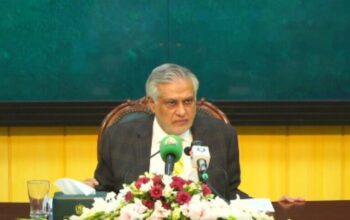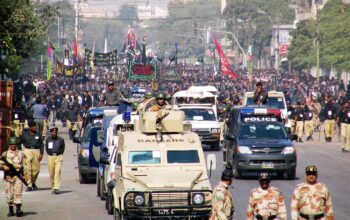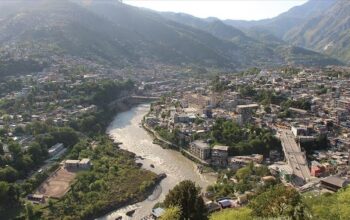By Staff Reporter
ISLAMABAD: The Supreme Court of Pakistan on Friday reserved its verdict in a politically explosive reserved seats case that could upend the country’s parliamentary balance, following a tense hearing marked by a justice’s recusal and sharp exchanges.
The court’s decision, revisiting a July 2024 ruling that recognised 39 lawmakers as members of the Pakistan Tehreek-e-Insaf (PTI), holds the potential to elevate PTI to the National Assembly’s largest party, threatening the fragile coalition of the Pakistan Muslim League-Nawaz (PML-N) and Pakistan Peoples Party (PPP). Signaling urgency, the bench promised a swift resolution with a short order to come.
The hearing on review petitions took a dramatic turn when Justice Salahuddin Panhwar stepped down from the bench after an objection from senior counsel Hamid Khan.
The recusal, which reduced the Constitutional Bench to 10 members, sparked a fiery clash between the justices and Khan, amplifying tensions in a legal battle that could crown the former jailed prime minister Imran Khan’s PTI as the largest party in the National Assembly.
The case hinges on a July 12, 2024, Supreme Court ruling that stunned Pakistan’s political establishment. Eight of 13 justices then declared that 39 of 80 members of the National Assembly (MNAs) were rightful PTI candidates, a decision that, if enforced, would reshape the parliamentary balance.
Yet, months later, the National Assembly has not implemented the order, and the Election Commission of Pakistan (ECP) has balked, citing procedural concerns. The ruling Pakistan Muslim League-Nawaz (PML-N), the coalition partner Pakistan Peoples Party (PPP), and the ECP have filed review petitions, arguing against the ruling that granted PTI reserved seats for women and minorities.
Friday’s session, which began at 9:30 a.m. under the gavel of Justice Aminuddin Khan, laid bare the fault lines in Pakistan’s judiciary and politics. The 11-member bench, already down from its original 13 after Justices Ayesha Malik and Justice Naeem Akhtar Afghan stepped back in May, faced immediate scrutiny from Khan, representing the Sunni Ittehad Council (SIC), a PTI ally in the 2024 elections.
Justice Panhwar opened the day by addressing Khan’s objection from the previous hearing. “Hamid Khan raised an objection to the inclusion of judges in the bench who came to the Supreme Court after the 26th Amendment,” Justice Panhwar said, noting he was among those targeted. The 26th Amendment, passed earlier this year, altered judicial appointment processes, fueling debates over its impact on pending cases. “Public trust in the judiciary is essential,” Justice Panhwar continued. “It is because of these objections that I cannot sit on this bench.”
Though he expressed regret. “I was hurt by his remarks; we’ve worked together since 2010.” Justice Panhwar insisted the matter wasn’t personal. Khan praised the decision, but Justice Aminuddin shot back. “This is a result of your conduct. We gave you respect, that’s why we are listening to you, otherwise we were not under any obligation to hear you.”
The exchange grew testy. “Giving respect is what gets you respect,” Justice Mandokhail told Khan. “Whatever respect you have today is because of the Supreme Court.” When Khan accused the justice of anger, Justice Mandokhail revealed a personal sacrifice. “I have skipped my mother’s funeral to be here and you are joking.” He gave Khan 10 minutes to argue. “I know how to do my job, you be careful with your words.”
Justice Aminuddin overruled Khan’s objection and urged him to proceed, but not before Justice Mandokhail reminded him that the SIC had appointed Faisal Siddiqui as its lawyer, not Khan. “We consider you a good lawyer,” Justice Mandokhail said, “but what you are doing right now is not the work of a good lawyer.”
The reserved seats saga traces back to the chaotic February 8, 2024, elections. On January 13, a three-member Supreme Court bench upheld an ECP decision nullifying PTI’s intra-party polls, stripping the party of its election symbol, a cricket bat. Forced to run as independents, 80 PTI-backed candidates won seats and later joined the SIC to claim reserved seats. The ECP rejected the move, prompting the Supreme Court challenge that led to the July 12 ruling.
PTI counsel Salman Akram Raja defended that decision on Friday, invoking the Sindh High Court Bar case as precedent. “After the emergency imposed on November 3, 2007, the Supreme Court declared it unconstitutional, and all actions taken in its aftermath were annulled,” he said, arguing the court has a duty to protect constitutional norms.
Raja pointed to past elections, 2013 and 2018, where parties received reserved seats proportional to their general seat wins. “In Khyber Pakhtunkhwa, a party [PTI] that secured 83% of the general seats was allotted zero reserved seats,” he said, calling it an aberration.
The bench pushed back. Justice Mandokhail asked. “Suppose Imran Khan, Nawaz Sharif, Asif Zardari decide to contest independently, how can we prevent them?” Justice Musarrat Hilali noted that losing an election symbol doesn’t erase a party’s registration, while Justice Muhammad Ali Mazhar flagged “a lack of coordination within the PTI.”
Justice Mandokhail added that the 39 MNAs who declared their PTI affiliation “were more sensible”, a point Justice Hilali reframed as “a higher tolerance for pressure.”
Khan, meanwhile, recounted the election symbol debacle. “It was a Saturday, a holiday, but the case was heard until 11 p.m.,” he said. “At midnight, our election symbol was taken away from us, and the deadline for symbol allotment passed.” He accused the ECP of favoritism, noting the Awami National Party (ANP) got extra time despite skipping intra-party polls.
Justice Mazhar countered that PTI had years to refine its processes: “Your party constitution is better than others.” Khan quipped, “It seemed the PTI was punished for drafting a better constitution.”
Copyright © 2021 Independent Pakistan | All rights reserved




